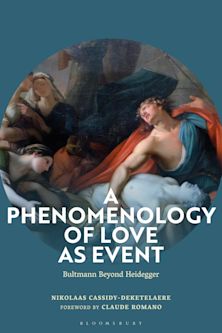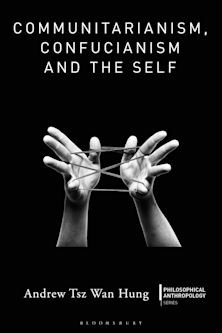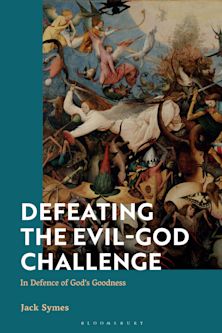- Home
- ACADEMIC
- Philosophy
- Philosophy of Religion
- René Girard and Creative Reconciliation
René Girard and Creative Reconciliation
Vern Neufeld Redekop (Anthology Editor) , Thomas Ryba (Anthology Editor) , Cameron Thomson (Contributor) , Sandor Goodhart (Contributor) , Nadia Delicata (Contributor) , Jon Pahl (Contributor) , Sue-Anne Hess (Contributor) , Pete Smith (Contributor) , Eugene Webb (Contributor) , Frank Richardson (Contributor) , Kathryn Frost (Contributor) , Leonhard Praeg (Contributor) , Steve Moore (Contributor) , Rupa Menon (Contributor) , Duncan Morrow (Contributor) , Joel Hodge (Contributor) , Cynthia Stirbys (Contributor) , Angela Kiraly (Contributor) , Nikolaus Wandinger (Contributor) , Miguel de Las Casas Rolland (Contributor)
René Girard and Creative Reconciliation
Vern Neufeld Redekop (Anthology Editor) , Thomas Ryba (Anthology Editor) , Cameron Thomson (Contributor) , Sandor Goodhart (Contributor) , Nadia Delicata (Contributor) , Jon Pahl (Contributor) , Sue-Anne Hess (Contributor) , Pete Smith (Contributor) , Eugene Webb (Contributor) , Frank Richardson (Contributor) , Kathryn Frost (Contributor) , Leonhard Praeg (Contributor) , Steve Moore (Contributor) , Rupa Menon (Contributor) , Duncan Morrow (Contributor) , Joel Hodge (Contributor) , Cynthia Stirbys (Contributor) , Angela Kiraly (Contributor) , Nikolaus Wandinger (Contributor) , Miguel de Las Casas Rolland (Contributor)
This product is usually dispatched within 1 week
- Delivery and returns info
-
Free CA delivery on orders $40 or over
You must sign in to add this item to your wishlist. Please sign in or create an account
Description
The contribution of this book to the field of reconciliation is both theoretical and practical, recognizing that good theory guides effective practice and practice is the ground for compelling theory. Using a Girardian hermeneutic as a starting point, a new conceptual Gestalt emerges in these essays, one not fully integrated in a formal way but showing a clear understanding of some of the challenges and possibilities for dealing with the deep divisions, enmity, hatred, and other effects of violence. By situating discourse about reconciliation within the context of Girardian thought, it becomes clear that—like Peter who vowed he would never deny Jesus but ended up doing it three times—any of us is susceptible to the siren call of angry resentment and retaliation. It is with a profound awareness of the power of violence that the emergence of mimetic discourse around reconciliation takes on particular urgency.
Table of Contents
Vern Neufeld Redekop and Thomas Ryba
Part I. FORGIVENESS, RESPONSIBILITY, AND BLESSING
Chapter 1: Mimetic Desire, Aphetic Mimesis, and Reconciliation as the Nexus of Letting Go and Turning Around
Cameron Thomson
Chapter 2: The Self and Other People: Reading Conflict Resolution and Reconciliation with René Girard and Emmanuel Levinas
Sandor Goodhart
Chapter 3: Dialogical Response
Sandor Goodhart and Vern Neufeld Redekop
Chapter 4: Blessing-Based Reconciliation in the Face of Violence
Vern Neufeld Redekop
Part II. THEOLOGY OF FRIENDSHIP, PEACE, AND NON-VIOLENCE
Chapter 5: Towards a Theology of Friendship in the “Global Village”
Nadia Delicata
Chapter 6: Clashing Minorities, Converging Majorities: Toward a Coming Religious Peace
Jon Pahl
Chapter 7: The Creative Non-Violent Approach of Walter Wink
Sue-Anne Hess
Chapter 8: Improvising the Practice of Nonresistance as Creative Mimesis
Peter Smith
Part III. RETHINKING GIRARDIAN CONCEPTS
Chapter 9: René Girard and the Symbolism of Religious Sacrifice
Eugene Webb
Chapter 10: Psychology, Hermeneutic Philosophy, and Girardian Thought: Toward a Creative Mimesis
Frank Richardson and Kathryn Frost
Chapter 11: Rethinking Girardian Reconciliation: The Myth of the Exception
Leonhard Praeg
Part IV. RECONCILIATION IN CONTEXT
Chapter 12: Seeding Reconciliation in a Theatre of War: A New Role for Military Chaplains
Steve Moore
Chapter 13: India and Pakistan: Changing Trajectory: The Role Of Karma Within a Framework Of Reconciliation
Rupa Menon
Chapter 14: There is a crack in everything…. New relationships for self and other in Northern Ireland
Duncan Morrow
Chapter 15: Reconciliation as Resistance: Martyrdom in East Timor
Joel Hodge
Chapter 16: Mimesis, Residential Schools and Reconciliation
Cynthia Stirbys
Chapter 17: Bosnian Children of Command Rape
Angela Kiraly
Chapter 18: “We Forgive and ask Forgiveness”: The Papal Prayers for Forgiveness in Mimetic Perspective—With an Afterthought on Recent Cases of Sexual Abuse of Minors by Church Officials
Nikolaus Wandinger
Chapter 19: From Fracturing Resemblances to Restorative Differences: Identity, Conflict, and Mimetic Desire among the Maya Tzotzil Chamula of Chiapas Mexico
Miguel de Las Casas Rolland
Conclusion
Vern Neufeld Redekop and Thomas Ryba
Product details
| Published | Jan 09 2014 |
|---|---|
| Format | Hardback |
| Edition | 1st |
| Extent | 424 |
| ISBN | 9780739169001 |
| Imprint | Lexington Books |
| Illustrations | 8 BW Illustrations |
| Dimensions | 236 x 162 mm |
| Publisher | Bloomsbury Publishing |
About the contributors
Reviews
-
Professor Rene Girard contended that mimetic violence and rivalry are at the center of all conflict and the sacrifice of a victim brings about harmony until the next round of conflict escalation. Dr. Vern Redekop and Dr. Thomas Ryba break new ground in the Peace and Conflict Studies (PACS) field by applying Girard’s often-viewed controversial theory of violence to the reconciliation, forgiveness, and nonviolent processes of societies transitioning out of violence. This new study is a must read for PACS students, scholars, and practitioners as well as policymakers and NGOs.
Sean Byrne, University of Manitoba
-
This book is an invitation and a gift to the conscience of humankind. It engages a seminal thinker as Rene Girard in conversations that are generative and promising for all those who are concerned by violence and its seduction. It is a new beginning for conflict resolution as a field of study.
Andrea Bartoli, President, Sant'Egidio Foundation for Peace and Dialogue
-
Creative Reconciliation, an interdisciplinary, globally-contextualized anthology, engages and transcends Girardian mimetic and scapegoat theory to deal with diverse complexities of, and justification for violence amid the amazing litanies of reconciliation. The volume critiques violence and works for justice, blessing, and healing amidst dynamics of hermeneutics, truth-telling, mimesis, hospitality, and religion. It is a must read for anyone who deals theoretically and/or practically with systems of conflict, violence, and injustice; for anyone who hopes for a better world.
Cheryl A. Kirk-Duggan, Seminary of the Southwest
-
The authors marry an analytical “taxonomy of the human soul” with sophisticated psychological insights into identity, reconciliation, and justice. Like an artist blending a thousand colors into a masterpiece painting, this volume for the advanced peacebuilding expert brings into striking dialogue the resonant voices of important scholars.
Lisa Schirch, Eastern Mennonite University
-
Through their broad exploration of Rene Girard’s notion of mimesis, the authors of this book provide a deep dive into the reality of identity-based conflict that often erupts from rage and envy. Such conflicts — in the family, down the hallway, in the workplace, and most of all between ethnic groups — are deep and even murderous. Through analysis, case studies, and wide ranging philosophical excursions the authors share the urgency and possibilities of reconciliation that can be fostered out of confrontation with the image of the Other within, and empathy that may emerge from true encounter with the Other that is without. This book provides a missing key to the reasons and ways of such reconciliation. Here’s hoping educators, conflict resolvers, policy makers, and local leaders will read and follow its wisdom.
Jay Rothman, Bar Ilan University, author of From Identity-Based Conflict to Identity-Based Cooperation (2012)


































